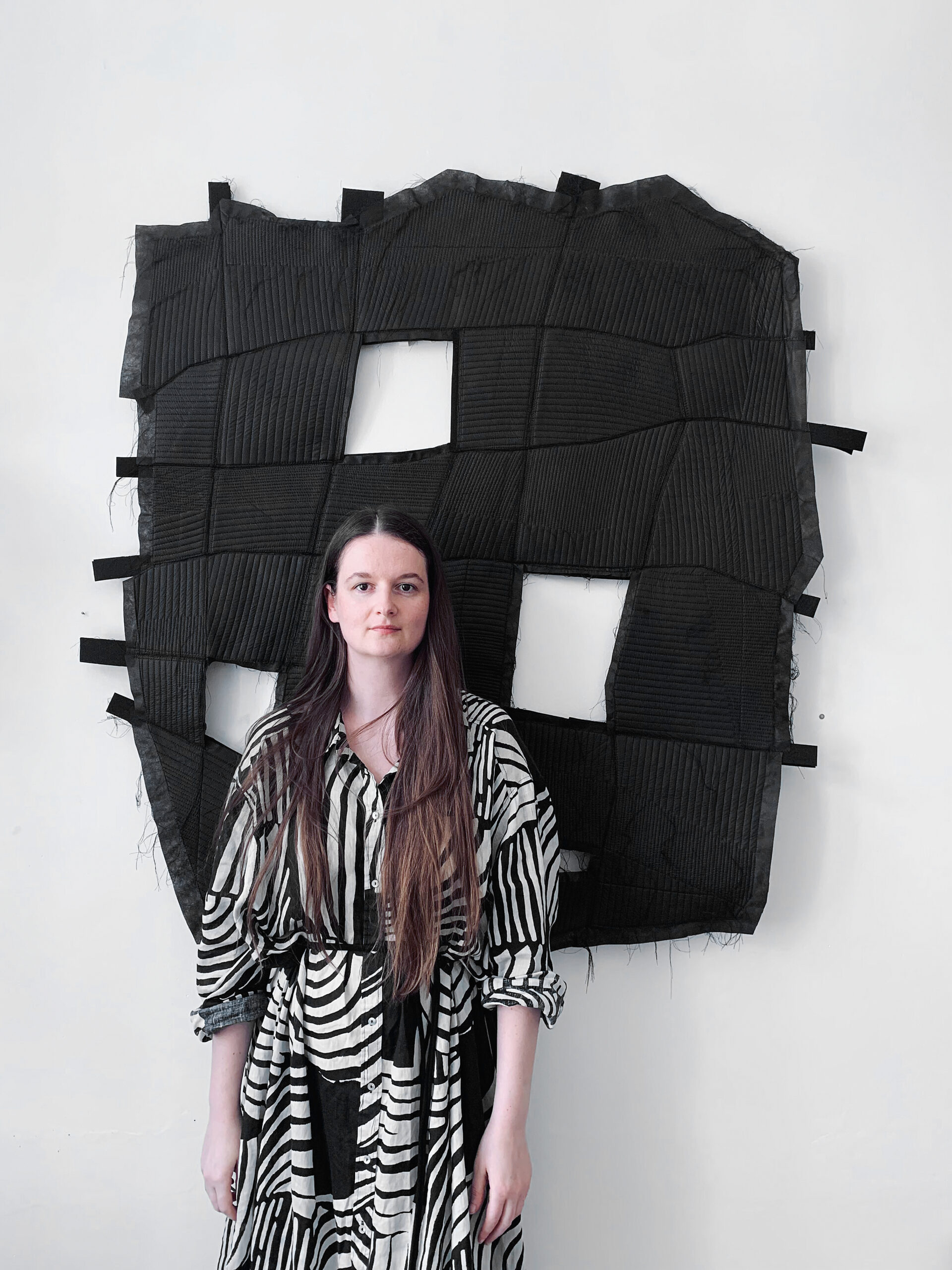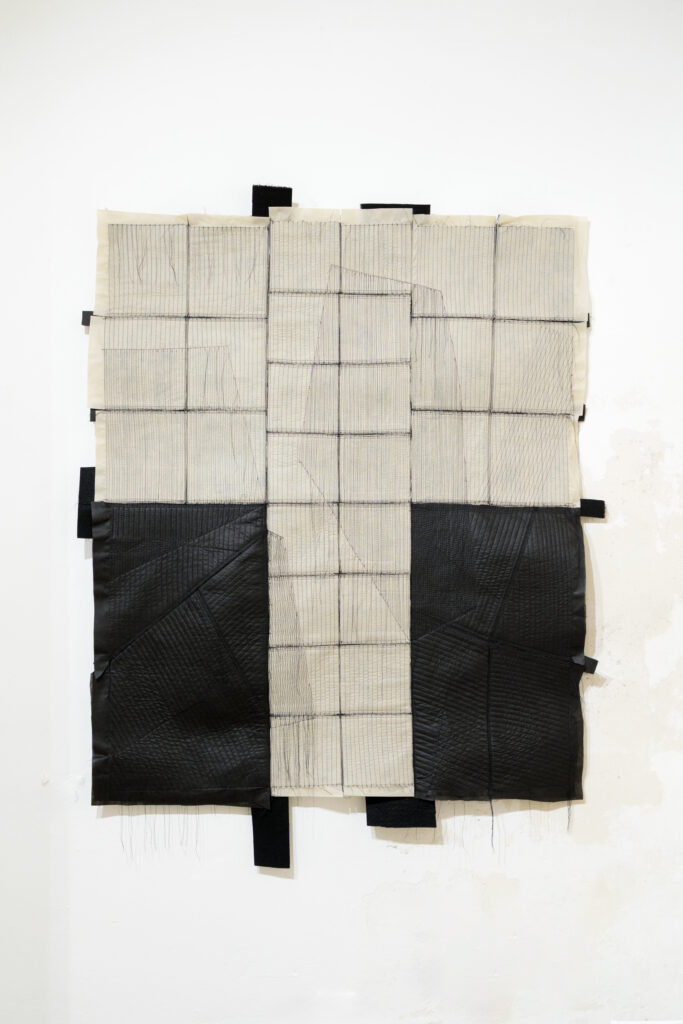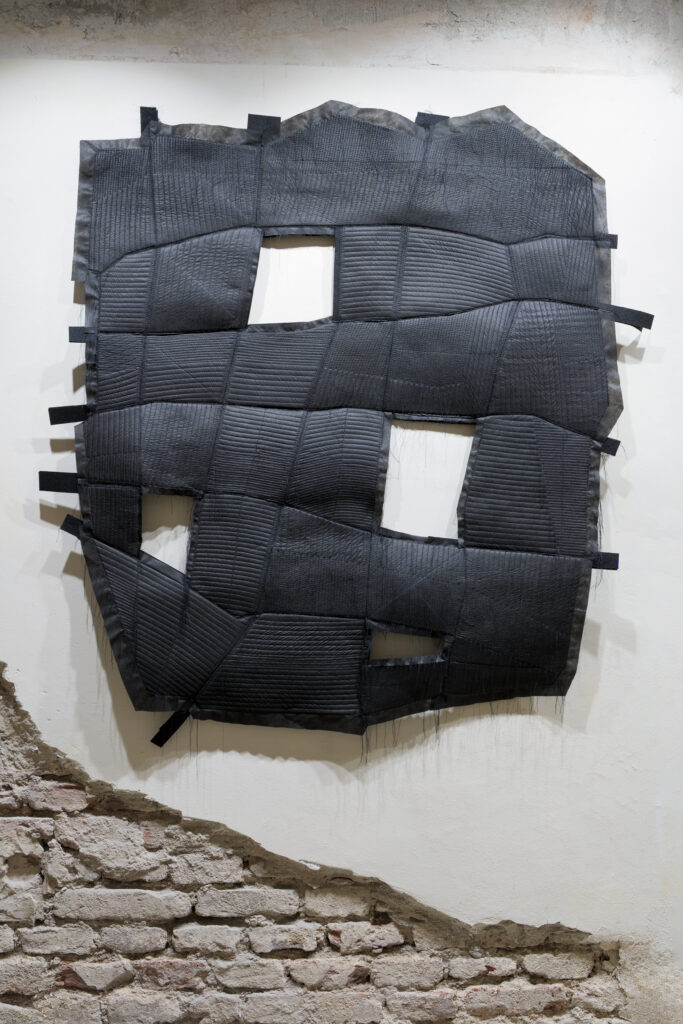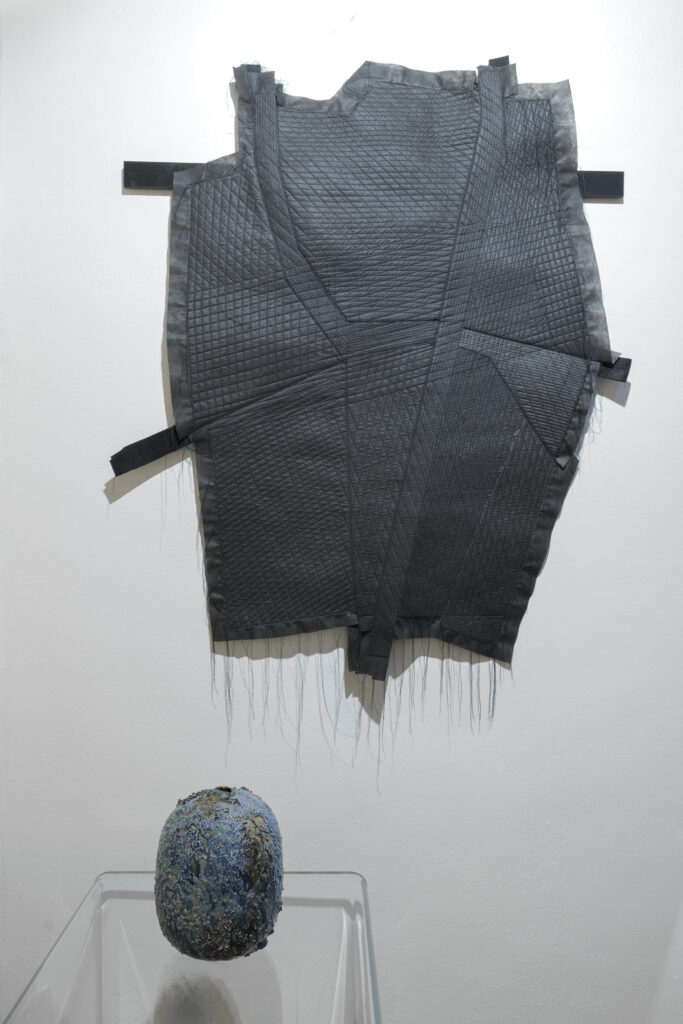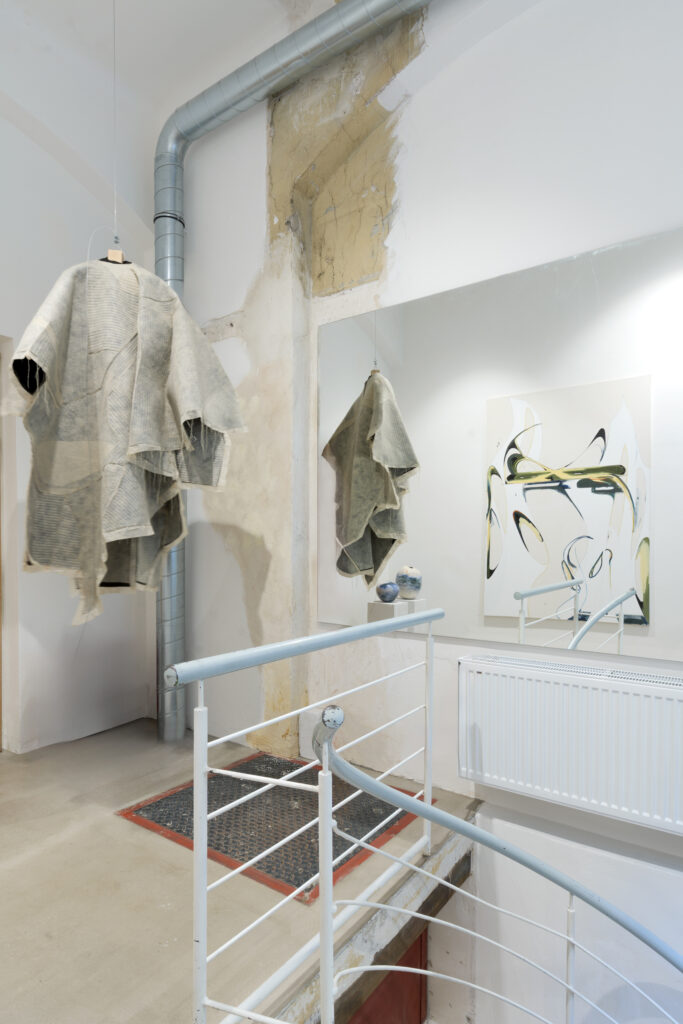Miroslava Klesalová
She draws on the specific village in which she grew up and traces its visual and ecological form in terms of its gradual transformation.
In her installations, she evokes the morphology of agricultural fields that are losing their original contours, just as their function is changing – places of proximity and safety are becoming abandoned or unmaintained zones, marked by changes in farming and climate. Here, textiles serve not only as a pictorial ground, but as a memory layer – a trace of the body of the landscape to which continuity is restored in an artistic gesture.
Artist's exhibitions
Pulse of Samsara
The artists’ work focuses on themes of transformation, memory and material as a carrier of stories and experience. Through materials such as geotextiles, clay and painting canvas, we follow a rhythm that is not linear but cyclical – layered and constantly renewing. Like samsara itself: a cycle of life, death and rebirth, in which each transformation is also a return to the beginning – to the body, the soil and collective memory.
At a time when we live in an environment overwhelmed by synthetic substances, accelerated production and alienation from original resources, these works offer an alternative rhythm. The time-consuming handmade processes the artists choose are not just a poetic gesture, but an active political decision. Through the material, they turn to fundamental questions: how do we perceive the transience of our own existence in a world that we threaten with our indifference? The soil from which we emerged can remain and regenerate itself – even without us.
The exhibition also opens up the question of how to break out of the cycle of recurring crises – ecological, social and personal. From a Buddhist perspective, samsara represents not only the cycle of life, but also attachment to unconscious action. A possible answer is bodhi – a state of awakening, recognition of context and acceptance of responsibility, which in the Christian tradition can be likened to rebirth or inner transformation, leading to awareness, turning and active acceptance of responsibility for one’s own life and the world around us. Artistic processes based on attention to material, place and time thus become not only an expression of care for the world, but also a call to transform the way we act in it. To step out of the cycle is not to abandon the world, but to begin to create it more consciously – with a respect that transcends individual experience.

